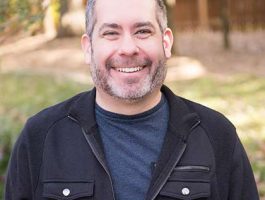
How Are Screens Influencing Us?
Authors David Kinnaman and Mark Matlock talk about the challenges youth face spiritually as they navigate all the opposing views and opinions of the spiritual Babylon we're living in. Kinnaman, who has been with Barna Research Group for 25 years, explains that the gap between Christians and non-Christians is growing, and our youth face a large chasm from which to interpret their faith. With the constant drizzle of news and information, they are feeling more anxiety and fear. Together Kinnaman and Matlock explain how parents can help their children use technology wisely.
Show Notes
About the Host
About the Guest
-
- Find resources from this podcast at https://shop.familylife.com/Products.aspx?categoryid=130.
- Download FamilyLife's new app! https://www.familylife.com/app/
- Check out all that's available on the FamilyLife Podcast Network. https://www.familylife.com/familylife-podcast-network/
-
Dave and Ann Wilson
Dave and Ann Wilson are hosts of FamilyLife Today®, FamilyLife’s nationally-syndicated radio program. Dave and Ann have been married for more than 38 years and have spent the last 33 teaching and mentoring couples and parents across the country. They have been featured speakers at FamilyLife’s Weekend to Remember® marriage getaway since 1993 and have also hosted their own marriage conferences across the country. Cofounders of Kensington Church—a national, multicampus church that hosts more than 14,000 visitors every weekend—the Wilsons are the creative force behind DVD teaching series Rock Your Marriage and The Survival Guide To Parenting, as well as authors of the recently released book Vertical Marriage (Zondervan, 2019). Dave is a graduate of the International School of Theology, where he received a Master of Divinity degree. A Ball State University Hall of Fame quarterback, Dave served the Detroit Lions as chaplain for 33 years. Ann attended the University of Kentucky. She has been active alongside Dave in ministry as a speaker, writer, small-group leader, and mentor to countless wives of professional athletes. The Wilsons live in the Detroit area. They have three grown sons, CJ, Austin, and Cody, three daughters-in-law, and a growing number of grandchildren.
-

David Kinnaman
David Kinnaman is the is coauthor of unChristian, You Lost Me, and Good Faith. He is president of Barna Group, a leading research and communications company that works with churches, nonprofits, and businesses ranging from film studios to financial services. Since 1995, David has directed interviews with more than one million individuals and overseen hundreds of U.S. and global research studies. He and his wife live in California with their three children.
Mark Matlock
Mark Matlock has been working with youth pastors, students, and parents for more than two decades. He is the principal at WisdomWorks a consulting firm dedicated to helping individuals, churches and faith-centered organizations leverage the transforming power of wisdom to accomplish their mission. Mark is the former executive director for Youth Specialties (YS) and creator of the PlanetWisdom student conferences. He has written more than twenty books for teens and for parents. In addition, Mark...more
David Kinnaman and Mark Matlock talk about the challenges youth face spiritually. Together they explain how parents can help their children use technology wisely.
How Are Screens Influencing Us?
Bob: The digital revolution that we're living through is reshaping how all of us are being
discipled. Mark Matlock says that's especially true for teenagers and young adults.
Mark: When we look at the typical screen time that a 15-23-year-old is experiencing, it's about 2,700/2,600 hours a year. Now, we asked them, you know, and tried to look at how much spiritual content they're taking in. The average teenager is taking in about 153 hours of spiritual content. We look at the typical churchgoer, it's a little under 300 hours. Now, somebody else has discipled him, my job is—I have to unpack all of that.
What we need to understand, as parents, is that, just because we see our kids doing some of the same things that we did—attending church, raising your hands in worship, going to summer camp, participating in mission trips—what's going on in the inside/the interior world can be really different, because they've got this screen relationship that they're able to have somewhere else.
Bob: This is FamilyLife Today for Monday, August 3rd. Our hosts are Dave and Ann Wilson; I'm Bob Lepine. You can find us online at FamilyLifeToday.com. How do we, as parents, train up our children in the way they should go when their screens have started doing that job for us? We're going to talk more about that today. Stay with us.
And welcome to FamilyLife Today. Thanks for joining us. Everywhere we go, and we talk to moms and dads, I think it is the question that comes to the surface more than any other question—concern about their kids, whether they're in high school or adult kids, not hanging with the faith—not going to church/starting to fade away or fall away.
Dave: Well, it was your question, as well, wasn't it, Bob? When your kids were little and growing up, it was like, “Oh my goodness; oh my goodness; oh my goodness. How are we going to help them be followers of Christ when they are 18, 28, 38?”
Ann: I feel like it's more so today, though. You're right, Bob, I think there's a fear that people feel; because they do see people leaving the church.
Bob: We're hearing the statistics about, you know, the 75 percent of the kids, who were active in their youth group, who are no longer involved in church, 5 or 10 years later. We wonder: “Do they come back when they have kids?” and all of that.
You heard a presentation—this was a few months ago—and you said, “We need to talk to these guys and help moms and dads understand—
Dave: It might have been the first time you ever listened to me Bob. [Laughter] You're like, “We've got to bring these guys in.”
Bob: It was not the first time.
Dave: I know; I'm kidding you.
Bob: It was the third time.
Dave: I was passionate about the research and the understanding of what God's doing in the next generation. I said, “Let's get these guys in here and let's do this.” They're here!
Bob: So introduce these guys.
Dave: They're here—Mark Matlock, David Kinnaman. In fact, Kinnaman got me in big trouble back in the days when he wrote the book, unChristian, with [who]?—Gabe Lyons?
David: That's right.
Dave: Yes, back in the day. I don't know if I ever told you this but, when that came out—the study, which was fascinating—I read it, thinking, “What's he know? You're going to go out and interview non-church people and find out what they think of the church and believers.”
Then, as I read that, I'm like, “All of these signs that they saw are true.” I go to our staff and say, “We got to read this,” and “I think we should do a series at our church and say, 'We're sorry.'” And we did; we called the series “We're Sorry” for the things that you put in the book that the unchurched had said they felt from the church. I identified—like, “I think we've done that.”
Here's a long intro; but I end up on WJR, the biggest radio station in Detroit, because they heard: “A church is apologizing?” I go on this thing [phone]—I'm in a meeting, literally—come out, say the thing; and right as I'm getting ready to get off the interview, the host goes, “Hey, could you hang on for some calls? You know, we'll take some calls.” I'm like, “I don’t know; okay.”
Ann: —questions.
Dave: And you know what the calls were? They were church people yelling at me for doing a series, where we apologized. That book and that research—and this book, Faith for Exiles, that you've just recently written—
David: —which is really the third in a trilogy of books.
Dave: Yes, right—they are powerful understandings of our culture, and our church, and our kids.
Bob: We should say David is joining us remotely from his home in Southern California. Mark Matlock is in the studio with us. You guys collaborated on this work. David, the underlying thesis of the book, Faith for Exiles, is that we live in a new day; and we need to understand the new day if we're going to continue to be effective in evangelizing and discipleship; right?
David: Yes, that's right. I've spent the better part of—I've been here at the company, the Barna Group,for 25 years; and started straight out of college—started working with George Barna, an amazing researcher/cares so much about the health and vitality of the church. I started focusing in on Millennials and Generation Z when I started working on the book, unChristian, working with Gabe Lyons.
It's been almost 15 years now of the 25 years that I've been here, where I'm spending a lot of time thinking about, interviewing, trying to explore the ways to build resilient faith in the next generation. As you said, the thesis of this book, Faith for Exiles, is that the disruptions of our current context of digital life—of sort of the secularization of our society, of the distractions that we deal with, the chaos and anxiety that this generation feels—it's a very different place to try to disciple. Whether we're raising kids who are teenagers, or young adults, or younger, all of us are facing a brand-new landscape in which we're trying to work out how to pass on our faith in a meaningful way.
Bob: If we had been alive during the time of the Gutenberg press, we probably would not have recognized: “Oh! This is a revolution that's happening around us”; because when you're living in a revolution, you don't necessarily recognize it's a revolution. A hundred years from now, should the Lord tarry, people will look back on this period of time—the digital revolution that's taking place—and say, “That was a culture changer.”
David: I absolutely believe that's right. And I think we really don't understand the depth of that change. We've come up with this phrase—we call it “digital Babylon”—that what's happening for this generation is that they're being raised and growing up in a new kind of Babylon. In Scripture, we see over and over, this concept of Babylon. Right from the very beginning: the Tower of Babel; and then Daniel is in actual Babylon; and then, all the way in the Book of Revelation, John is writing about Babylon; and even 1 Peter—he talks about the current Babylon.
This idea of Babylon is a very biblical concept. I think the idea that we're living in
a new kind of digital concept—access to pornography, the gospel according to YouTube®, the plausibility of Christian belief—all these things are changing the nature of how young people grow up. The authority of the local church; the authority of the Bible; the authority of parents and grandparents, who've believed this their whole life—it doesn't have the weight as it once did.
Ann: And not only have you guys researched the data, but you also have kids in this age group. How old are your kids? You're both married. Mark, how old are your kids?
Mark: Yes; so mine are 23 and 21.
Ann: And David?
David: —20, 18, and 15. Seeing their lives and their friends’ lives—it's much more than an academic big study for us. Even though we interviewed thousands upon thousands of young people to understand the bigger trends than just our own kids' stories, we see it in the lives of our kids, as well.
Mark: In fact, as we were writing the book, I was preparing to drop my daughter off in New York City, in Manhattan, to go to school in the arts. David was getting ready to drop/was dropping his daughter off at UC Berkeley, going into the sciences—two fields not traditionally known to be embraced by Christendom.
Bob: —and two cities that are not the evangelical meccas in America.
Mark: Correct; correct!
Ann: What did you feel?
Mark: For me—and I'll let David speak to his experience—it was kind of that feeling of just: “Wow! Okay, we're living this work that we're doing in 360 degrees in our life.”
David: It's personal.
Dave: Yes.
Mark: Yes, and the real concern of just: “We're going to see what happens”; right? We think we've done these things right; we think we've listened. And you know, I hate putting that pressure on my children—that somehow, they have to prove my experiment, as a parent.
But this idea of just realizing: “Boy, so many of the rules changed.” My daughter is going into her identify-forming years as smartphones are being released. We didn't have—there's no books on how to parent with technology or anything. Everything that we did was kind of trying to figure this disruption out/this digital Babylon out. And trying to figure out how this is going to play out in their lives.
Bob: And every parent, who has ever dropped a child off at college, drops them off with fear and trepidation, knowing that it's as likely—maybe it's more likely—that at the end of four years, they are going to have wandered from their faith, than have stuck with their faith.
So Mark, explain for a listener—who's maybe/maybe they haven't read the Book of Daniel in a while—Babylon versus Jerusalem; right? Those are the two parallels. One is
a city, where God reigns; and the other is a pagan city with pagan deities.
Mark: Correct. In so many ways, I think this describes the tension that a lot of older generations are experiencing in the church right now—this idea that things are shifting—and they don't completely understand why they're not comfortable in this move toward “nationalism” that we're experiencing in the United States. It's not just a US phenomenon; it's happening globally.
If you travel—even in India, I got in this big Twitter® war with some Hindu nationalists. It made me realize, “This is a global phenomenon—that this change is happening.” While we've always been diverse people in our world, we're encountering that diversity more often, with greater frequency, and in greater depth than we've ever had to deal with it. That's causing us some disruption in the way we normally go about our lives and how we disciple in that context. It's very different than how we disciple in Jerusalem.
Bob: So diversity versus homogeny—those are/that's one characteristic. We're moving from a more homogenous culture to a more diverse culture.
What are some of the other characteristics that differentiate the old way/the Jerusalem way from the new Babylonian culture we live in?
David: I think another big factor that we see in the research is that the gap between Christians and non-Christians in our society is growing. Another way to think about that is—most of society, among the Boomer and older generations, sort of understood and, at least, respected a Christian or biblical worldview—that's no longer the case with younger non-Christians.
Young Christians today face a much larger chasm to translate their faith into their public schools/into their lives. I mean, we have so many facts that could prove that to be the case. I know Boomers and elders, who hear that and think, “No, you didn't live through ‘60s; you don't know what it was like.” I just promise, from a social point of view, that the attitudes of most Americans were relatively homogenous. They believed the same kinds of things, and those things were based on a different kind of/sort of social ethic; basically, on a biblical ethic. That's one of the big things that this generation is facing.
We did a big study recently, where younger Christians/about half of Millennial-practicing Christians said it was wrong to evangelize. And yet, at the very same time, they said that the best thing a person could do—nine out of ten—said that the best thing a person could do would be to commit their lives to Christ and to follow Jesus. There's this great paradox.
I think that, if you understood that paradox in light of the experience they have—that most of their friends don't want to be proselytized; they don't want to become Christians or talked into it from a sales perspective—they feel that gap; young non-Christians are trying to close that chasm.
Mark: You know, another thing is—you know, where kind of self-righteousness was maybe the false idol of Jerusalem—in this Babylon, it's this idea of keeping up; this fear of missing out: “I've got to be in the know.” You see everybody weighing in on everything: you know, I'm a constitutional scholar on Facebook® one day, and I'm a Corona virus expert the next day. [Laughter] Everybody's got an opinion on all of this, because we feel like we have to.
For a generation that's growing up in probably one of the best times to be alive, as a young person, they are experiencing more stress and anxiety. A lot of that is because they have more options available. The things that we would look at as: “You're more secure; there's better education; there's better jobs available,”—all these things. But the number of options and paths that they have available causes a lot of stress; and as much as they're connected, they're isolated; and they feel loneliness too.
Bob: Yes; and I wanted to touch on that, because the loneliness epidemic is something that cannot be minimized. They're more connected to their friends than ever before through social media, through texting, through the constant connectivity of a cell phone; and yet, they are lonelier and more isolated than maybe they've ever been. Suicidal ideation is higher than it's been in a long time.
Ann: Help parents understand: “Why is that?”
Mark: Well, you know, my son asked me a question the other day; he said, “Dad, when you were growing up, did you ever feel safe?” And I said, “Son, what do you mean by that, son?” And he goes, “Because when I go to school, I never feel safe. I always feel like I have to watch over my shoulder and all that.”
Bob: Is he talking about physical safety?
Mark: —physical safety.
Bob: Wow!
Mark: And I realized, “You know what? I even had an incident in high school, where we had an active shooter on our campus; and that still didn't make me feel unsafe.”
But they live with a narrative. Because of the 24/7 news cycle, they're aware of every—even though we know that child abductions are lower than they've ever been—our experience of that information has increased and our awareness of all that, so we actually think things are less safe. For a generation that's grown up, forming their identity in this kind of a cycle, they have no way of being able to balance that and put it into any kind of context; so it creates a lot of insecurity.
Dave: And as you/as we know, the fear is in our hand. It's digital; it's constantly bombarding us. When we went to school, if there was an incident, you'd hear about it in the news, maybe that night; maybe read it in the paper—remember those things?—an actual paper?
David: Maybe you'd never hear it!
Dave: Yes.
Ann: Yes.
Bob: If you did hear about it, it was far away; and you didn't experience it. But today, because there's instant video of everything that's happened, it's like it's happening right around the corner from you; and you feel like you've been there with it.
David: And I think, in addition to that, one of crazy things about screens is the immediacy of young people's experience of that anxiety. In the past, if you saw something happen around you—like I remember being a student in college—the only thing I can remember happening outside of my experience, at a Christian college, was the Oklahoma City bombing. That was enough to break through the bubble that we had around us, as college students. Today, if you compare that, people are experiencing things in an immediate way. Anxiety—there's so much social research that's out today, showing how much the levels of anxiety are increasing for this generation.
I think we, as Christians, have a couple of responses. One is to just recognize and acknowledge: “That's a true experience.” But number two, it also means we have a responsibility to help this generation root themselves in something that's deeper than the moment-to-moment reality—is that Jesus's words about: “Be anxious for nothing,” “Let tomorrow's worries be enough for tomorrow,” and “Enjoy God's goodness today,”—these deep scriptural truths are so important, and they've never been more important than now.
Bob: And here's what's at the heart of what you guys have written in the book, Faith for Exiles—it is that, if we can recognize the times in which we live and the cultural landscape in which we live, we can do what Daniel, and Shadrach, and Meshach, and Abednego did—and that is we can live faithfully for God. We can train our kids to live faithfully for God. They just need to understand it's a different day, and we have to approach it differently than we did when we were coming up.
Mark: Let's talk about that—this idea of the weight of digital Babylon, just to get some perspective. You know, when we look at the typical screen time that a 15-23-year-old is experiencing, it's about 2,700/2,600 hours a year that they're taking in, in screen time. Now, we asked them, and tried to look at how much spiritual content they're taking in; the average teen is taking in about 153 hours of spiritual content. We look at the typical churchgoer; it's a little under 300 hours. Proportionately, there's a lot more content coming in via these screens. That led David and me to type two really powerful words onto the screen, which were just simply: “Screens disciple”—this idea that the church has been disrupted in that we have screens discipling; we don't even realize it.
I'm sitting there, with a teenager, and we're in a small group situation. He's a senior in high school, and he's debating with me about the existence of God. Because I've seen this kid grow up, I know he's not smart enough for the arguments that he's making to me; right? He's arguing way above his cognitive abilities. [Laughter] I know he's gotten this from somewhere. I wrote down a couple of phrases he used. I put them into Google®; and sure enough, this website popped up that basically said: “How to debate a theist.” He had internalized all this so much so that he could use it back in a conversation.
Now, in the past, what would have happened—had a teenager come to me because they were having doubts: “Mark, I'm doubting my faith. Is God real? How do I know?”—I would have sat down with them, and not just given them biblical reasoning, but I'd talk to him about his prayer life. I'd talk to him about reading the Scripture. We'd spend some time really getting in touch with Jesus, as a person in his life and building that relationship. We'd also look at the evidence of Scripture for why we can trust and believe that the Word of God is true and that these claims/it's rational to believe all of this.
But now, I'm not having that opportunity. Somebody else has discipled him; and now, my job is I have to unpack all of that. Just because we see our kids doing some of the same things that we did—attending church, raising your hands in worship, going to summer camp, participating in mission trips—what's going on in the inside/the interior world can be really different, because they've got this screen relationship that they're able to have somewhere else.
Bob: With their doubts and with their questions, they have access to voices that we never would have had access to before.
Mark: Absolutely.
Bob: And this idea that their screens are discipling them—this is a profound realization. I'm hearing the parents go, “That's it; we're cutting off the internet at our house, and nobody has a cell phone anymore. That's how we're going to solve this problem.”
David: That is the right answer—no, I'm kidding—[Laughter]—I am not anti-tech, so I think that's really important. I am the most tech-oriented parent; I love my kids having access to all of it. It wouldn't work anyway; would it?
Ann: Yes; so what do we do, as parents; because every parent is hearing that, thinking, “What do I do?”
David: First, there are wise ways for us to use technology, as parents. We're huge proponents of technology, but using it in the proper place. There's nothing wrong with limiting screen time; there's nothing wrong with thinking about how it is that our kids are going to be using technology—at what ages. In fact, I think the more wise and intentional we can be about that, the better.
We'll have listeners today that are across the full spectrum—from young, young kids to teenagers; to even, you know, the parents, whose kids are young adults—and just to recognize this is part of the reason why we called it Faith for Exiles and why we think about life in digital Babylon. God actually does call us to be in the world but not of the world.
One of the practices we can put in place/one of these deeper perspectives—and that's where the research led us to interview the ten percent of young Christians, who were the most resilient in their faith—and rather than just what Mark and I have done right or not done right in raising our own kids/the principles that we might pursue, personally—we try to learn from the research about what might make the young people most resilient. We learned there are these five principles that we can put in place.
Bob: Okay, hang on. I'm going to have to leave that as a cliff-hanger. I know every parent's going, “No! Give me that!” Okay, we'll give you that; you can get a copy of the book, Faith for Exiles; because the five principles are in there. Or you can keep listening this week, and we're going to continue the conversation.
Dave: I'd say, “Do both.”
Bob: Yes, absolutely; “Do both.” Go to our website—go to FamilyLifeToday.com—and get a copy of David Kinnaman and Mark Matlock's book, Faith for Exiles: 5 Ways for a New Generation to Follow Jesus in Digital Babylon. You can order, online, at FamilyLifeToday.com; or call to order: 1-800-FL-TODAY. Again, the website, FamilyLifeToday.com. The number to call to get your copy of the book, Faith for Exiles, by David Kinnaman and Mark Matlock: 1-800-358-6329—that's 1-800-”F” as in family, “L” as in life, and then the word, “TODAY.”
Now, if you've listened to FamilyLife Today for any length of time—if you're a regular listener—you know, in addition to talking about passing on a legacy of spiritual vitality to the next generation, we often talk about your marriage—about how you can take your marriage from good to great. We've got resources in place to help with that.
In fact, right now, online, there's the “Take Your Marriage from Good to Great” resource that's available that includes a couple of online video courses; audio messages from Paul David Tripp, Voddie Baucham, Juli Slattery, Dr. Gary Chapman. There's also a downloadable e-book. All of this is available for free, because we're committed to helping you strengthen your marriage relationship.
Anybody who downloads the content, as we've mentioned before, you become instantly eligible to win a trip to Family Life®, sit in on a FamilyLife Today recording session, have dinner that night with Dave and Ann Wilson. We'll cover the cost of your travel here; we'll put you up in a hotel; we'll give you some spending money—we'll take care of you. There's no purchase necessary. The contest ends August 14. Restrictions apply and official rules can be found at FamilyLife.com/good-contest.
And this month, we want to make available to you a copy of my new book, Love Like You Mean It. This is a book that's all about how the Bible defines love—what we read about it in 1 Corinthians 13 and how that applies to our marriage relationship. Your copy of the book, Love Like You Mean It, is our thank-you gift when you make a donation during the month of August. You can do that today. Go to FamilyLifeToday.com; make an online donation; or call 1-800-FL-TODAY to donate over the phone. Again, ask for your copy of my new book, Love Like You Mean It. It's our thank-you gift to you when you donate to support the ongoing ministry of FamilyLife Today.
Thanks for your support; we could not do what we do without you. On behalf of the hundreds of thousands of listeners, who benefit every day from your support, “Thank you for being a part of the team.”
We hope you can be back with us, again, tomorrow when we're going to dive into the five practices that contribute to resilience in the faith of young people. Our guests tomorrow—Mark Matlock and David Kinnaman—they'll be back with us again. I hope you can be back with us as well.
I want to thank our engineer today, Keith Lynch, along with our entire broadcast production team. On behalf of our hosts, Dave and Ann Wilson, I’m Bob Lepine. We will see you back next time for another edition of FamilyLife Today.
FamilyLife Today is a production of FamilyLife of Little Rock, Arkansas; a Cru® Ministry. Help for today. Hope for tomorrow.
We are so happy to provide these transcripts to you. However, there is a cost to produce them for our website. If you’ve benefited from the broadcast transcripts, would you consider donating today to help defray the costs?
Copyright © 2020 FamilyLife. All rights reserved.
1




